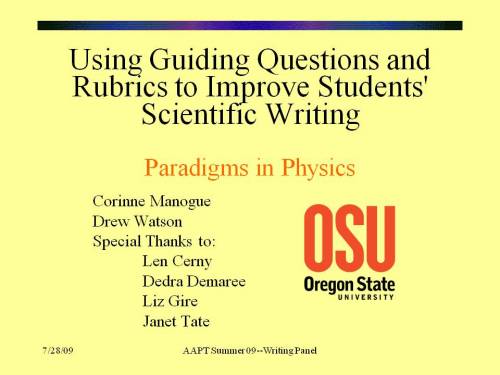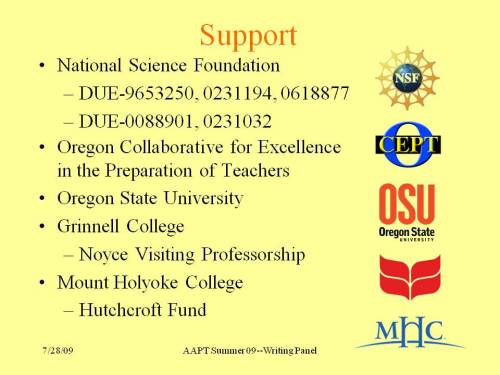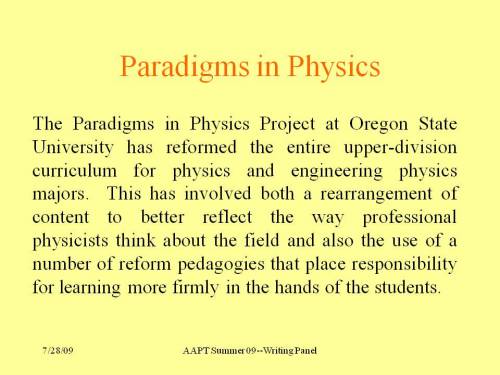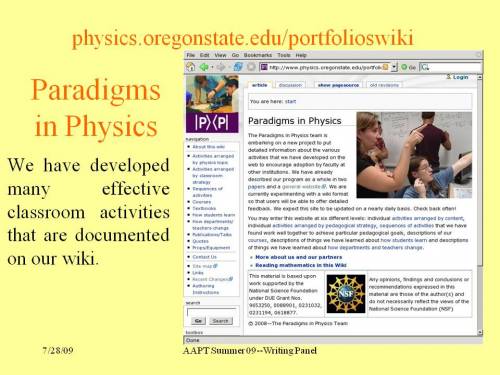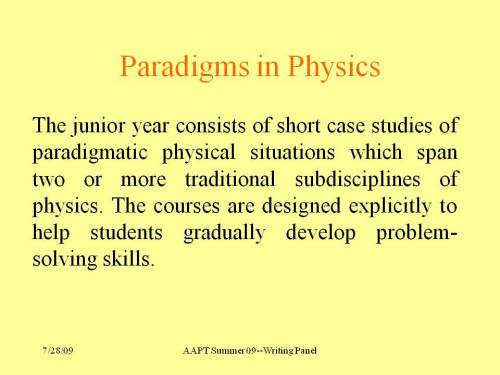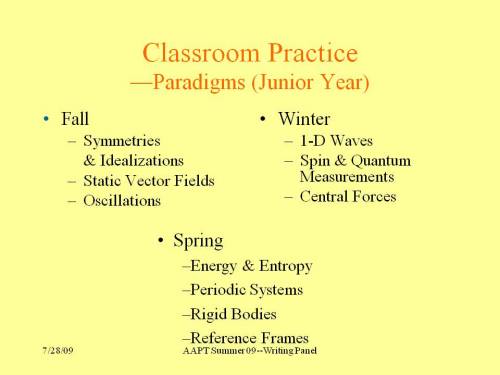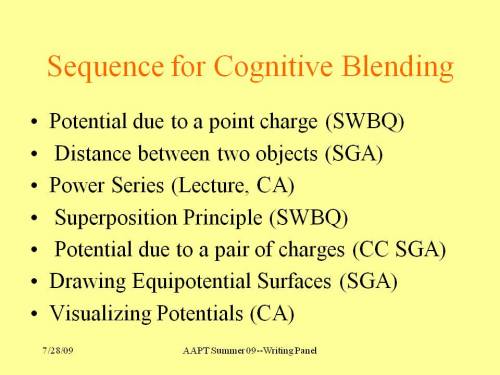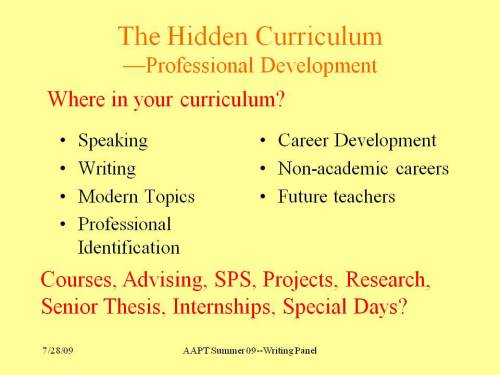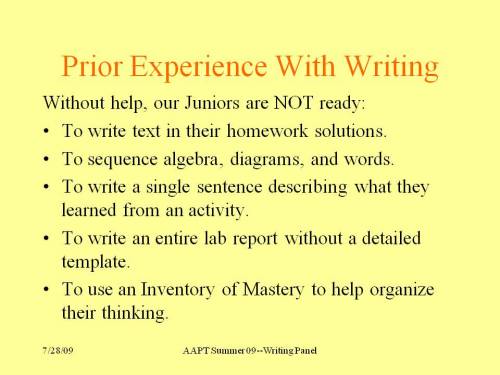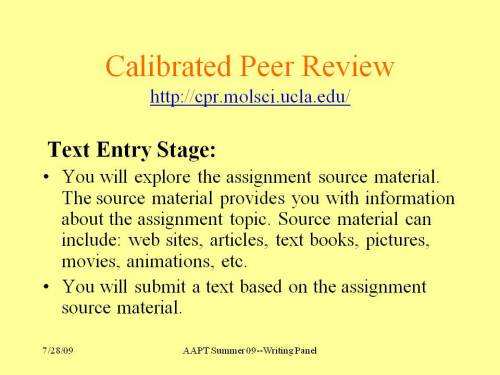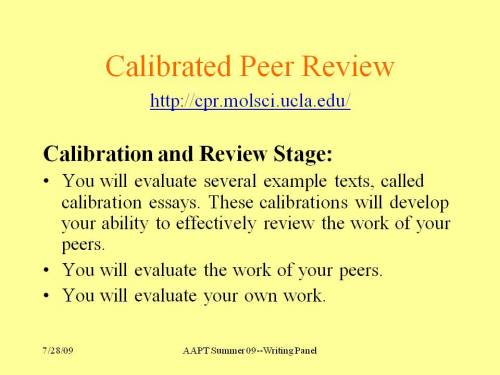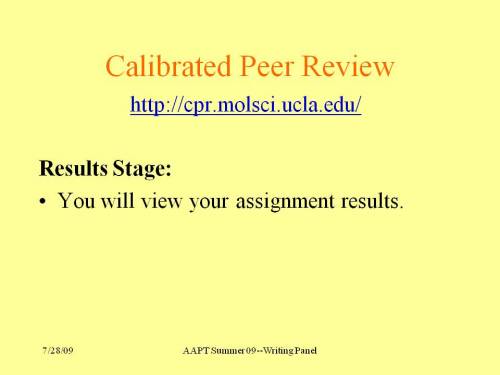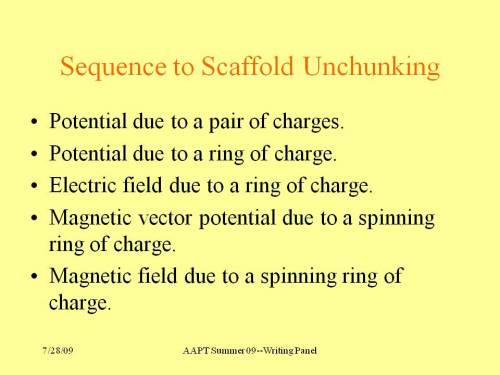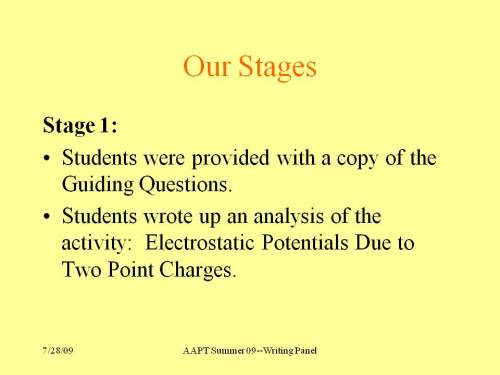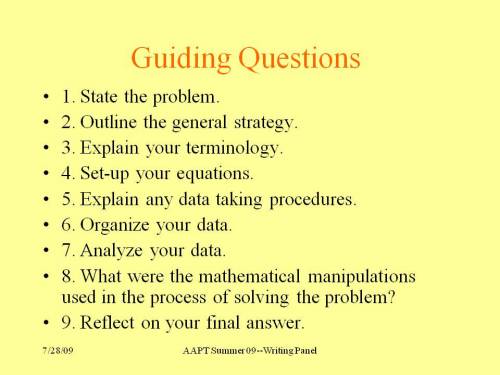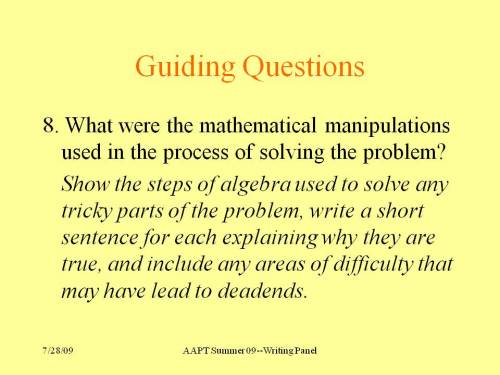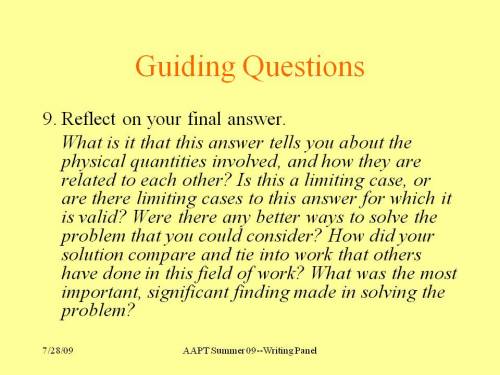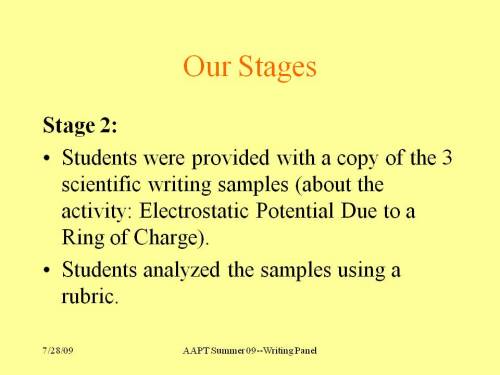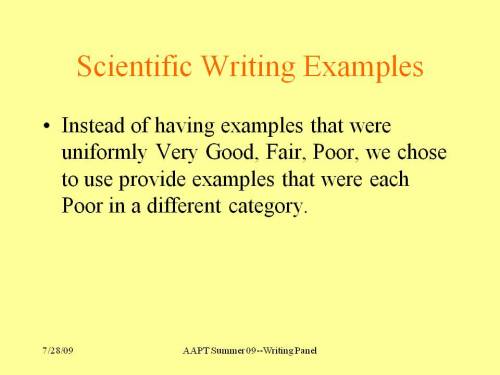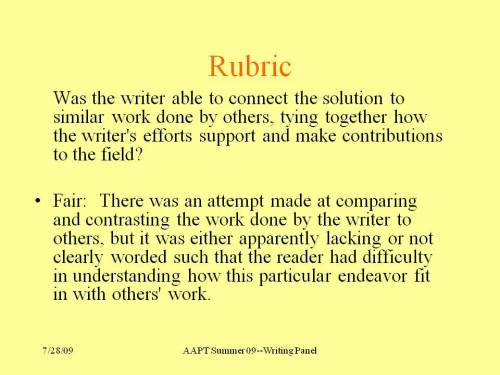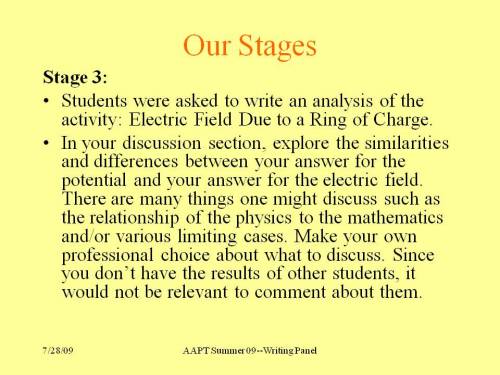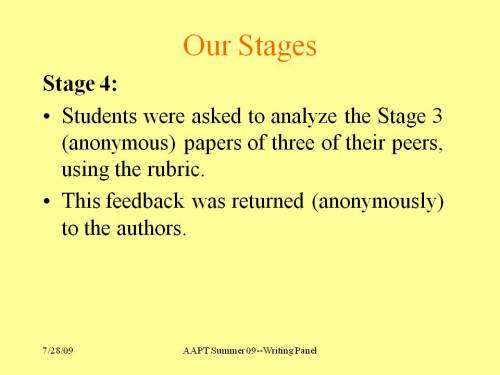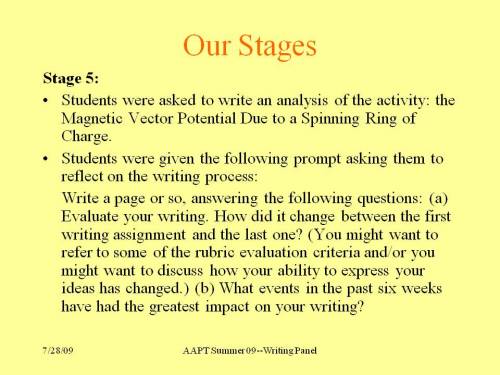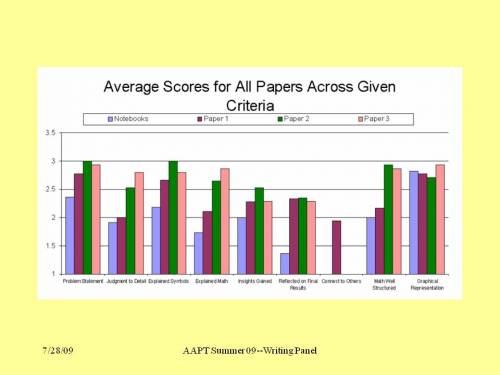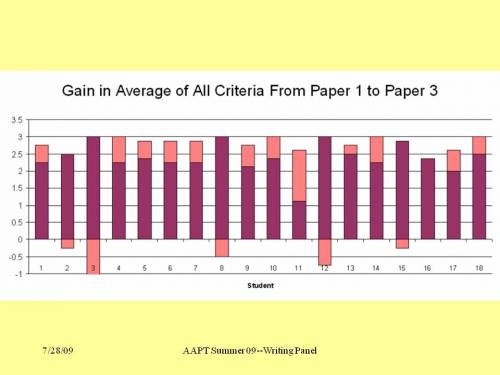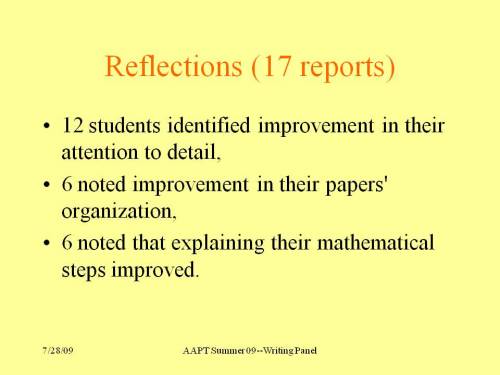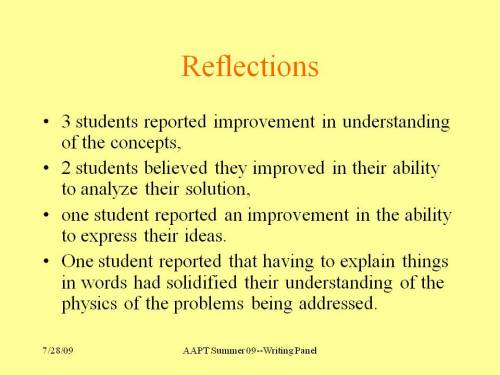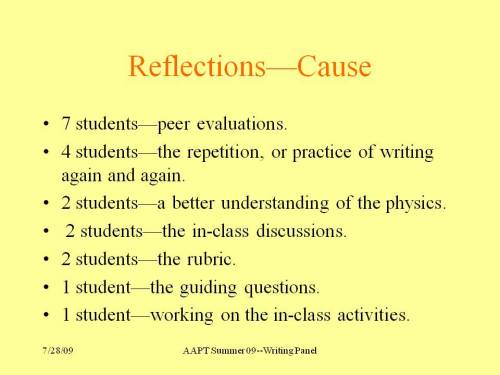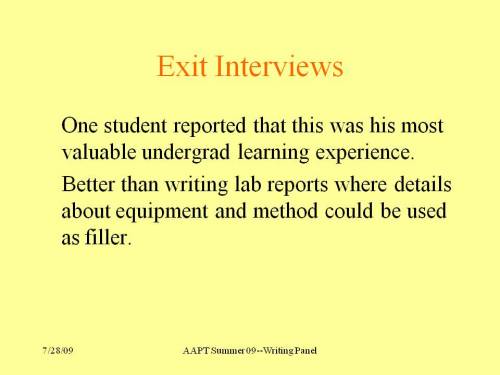You are here: start » workshops » talks » aapt09summerwritingtalk
Draft outline for Writing Talk (Invited Panel for Summer 09 AAPT)
Using Guiding Questions and Rubrics to Improve Students' Scientific Writing
- Drew's project and results about rubrics.
- Notes from text
- Does learning how to organize one's reading teach one about writing? Emily's literacy stuff
- outlining is linear, concept maps are not linear–how do students learn to output linearly?
- 4th grade vs 7th grade vs college
- Scaffolding writing assignments
- Lots of small assignments
- Lots of practice
- You can't write science well until you can write a single sentence
- Exit interview–Drew's stuff–NOT a lab report with set-up and experiment.
- “When you write about something, you figure out whether you know it or not”. “It teached (sic) us to write in a physics context.”
- Sensemaking–require every student to do sensemaking for every homework problem. Dimensions (vs. units), limiting case, tell me what yo learned.
- What is reflection? How do we teach it? Relationship to metacognition.
- How do you know when you know?
- Students say that listening to lecture is not enough (Liz)
- Students say that you need to solve problems (Liz)
- Students can't answer why solving problems helps (Liz)
- Barbara-settling
- Us as professionals (do other problems/permutations)
- Three questions at the end of class
- Something you learned
- Something that still confuses you
- Something you would like to know more about
- Question at the end of each homework question
- Tell me something that you learned by doing this problem that you would like to remember.
- Phases of the moon quotes.
